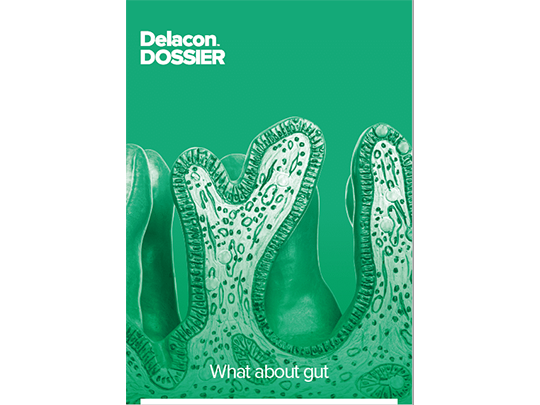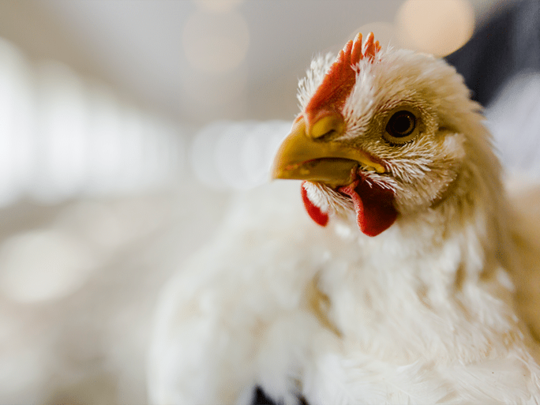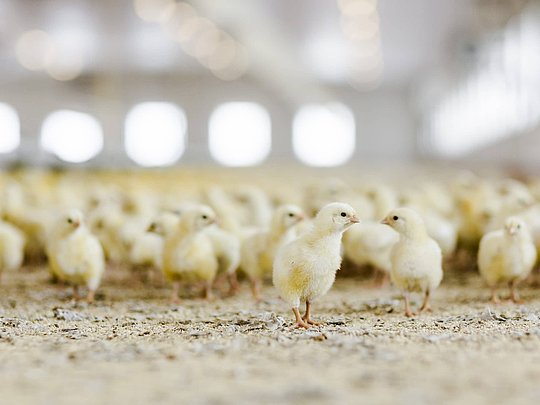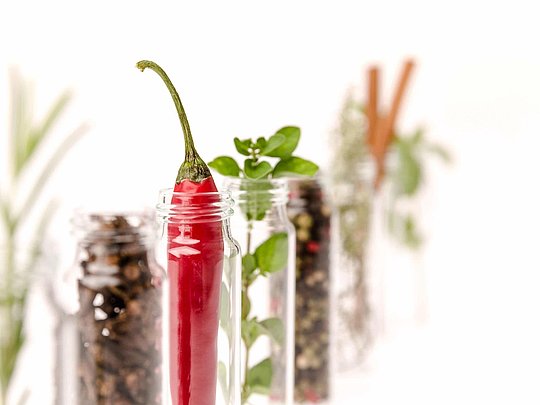What about…Gut health challenges in poultry?

Gut health challenges in their various forms can potentially result in severely impact on health, welfare and productivity of livestock.
Phytogenics have an important role to play in gut health management. Do you know about their ability to modulate the gut microbiome and defences? Or that specific phytogenics are known to fortify homeostasis by helping to regulate inflammatory responses and oxidative stress?
Read more about in this preview and read the whole article in our latest Dossier #Whataboutgut
Importance and definition of gut health

The intestine is primarily responsible for the digestion and absorption of dietary nutrients, as well as being a major body surface area in contact with the external environment and home to the majority of immune cells.
Gut health is a term frequently used to indicate the state of the gastrointestinal tract but health in this context can be difficult to define.
Generally, health means the absence of disease, but optimal functioning of the intestine, notably nutrient digestion and absorption, could be compromised even without detectable disease.
“Gut health is defined as the ability of the gut to perform normal physiological functions and to maintain homeostasis, thereby supporting its ability to withstand infections and non-infectious stressors“

A key term here is ‘homeostasis’, whereby the host’s gut is in equilibrium with the complex microbiome residing within it, as well as exogenous agents (e.g. nutrients) that can influence either the microbiome, host or both. Xenobiotics or pathogens can compromise this equilibrium and, ideally, the gut appropriately manages these threats.
Therefore, the intestine should predominantly retain a homeostatic state but with the ability to respond appropriately to pathogens, harmful compounds or imbalances (dysbiosis). A further challenge is how we assess gut health and thus determine departures from ‘normal’, which is an area under intensive research. In addition, the proper functioning of this multi-task system creates a suitable environment for feed digestion and nutrient absorption (Dias, 2014).
Gut resilience and phytogenics

Phytogenics are defined as natural, plant-based substances derived from herbs, spices, other plants and their extracts, such as essential oils. They consist of an interesting group of substances that have diverse attributes and warrant serious consideration regarding gut health management in the era of reduced antibiotic use strategies.
Phytogenic compounds are probably most recognised for their antimicrobial effects, which include antibacterial and antiprotozoal activity (Ayrle et al., 2016). In this regard, phytogenics can modulate the gut microbiota, its activity and/or specific pathogens, thereby influencing their interaction with, and activity of, host defences. Interference with quorum sensing (the mechanism of communication between bacteria) is a further example where phytogenics are able to modulate microbial activity.
Various studies have found...
...associations between different phytogenic compounds and the activation of NF-κB, NF-κB-regulated signals and/or Nrf2, thereby modulating inflammatory responses and antioxidant defence mechanisms to limit oxidative damage to cellular structures, pathology and prevent the inflammation-oxidative stress cycle (Chikara et al., 2018; Huang and Lee, 2018).
Via influencing the host-microbiota or pathogen interactions, phytogenics have been shown to modulate inflammatory responses in the gut and limit bacterial translocation. Consequently, the likelihood of uncontrolled escalating host systemic immune responses and oxidative stress in response to the pathogen or antigen threat is reduced (Huang and Lee, 2018).
References upon request.
How else can phytogenics offer support in poultry production?

Anne Oberdorf
Anne has always been fascinated by the unknown, the diversity and beauty of nature. Her love for nature brought her to Delacon in 2018 after studying agricultural sciences, where she worked as Technical Communications Manager and later as Product Manager Aquaculture. Since February 2021, she has been taking a new, natural career path outside of Delacon.










